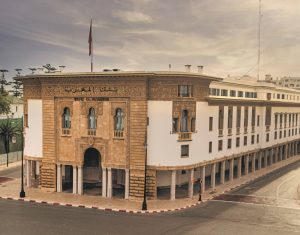Cryptocurrency, once a niche interest, has undergone a meteoric rise in popularity and relevance across the globe in recent years. This digital revolution has not spared Morocco, a nation experiencing a rapid evolution of its financial landscape. In this comprehensive article, we will embark on a journey into the world of cryptocurrency in Morocco, meticulously dissecting the multifaceted facets of this digital phenomenon. From the intriguing regulatory developments to the fervent adoption of Blockchain technology, we shall unravel the intricate tapestry that characterizes the cryptocurrency landscape in Morocco today.
Morocco, with its unique blend of tradition and modernity, finds itself at a critical juncture in its financial history. This North African nation boasts a burgeoning youth population, renowned for its tech-savviness and innovation hunger. These factors, combined with the growing acceptance of digital payments and an expanding e-commerce sector, have paved the way for the burgeoning interest in cryptocurrencies.

Yet, Morocco’s journey into the cryptocurrency realm is not without its fair share of complexities. The regulatory environment, which initially cast a skeptical eye upon digital currencies, has undergone a marked transformation. From an initial outright ban to a more nuanced and inclusive approach, Moroccan authorities have started acknowledging the potential and importance of Blockchain technology and cryptocurrencies in shaping the country’s financial future.
In this article, we will embark on an exploration of Morocco’s cryptocurrency landscape. We will delve into the evolving regulatory landscape, charting its transition and its implications for businesses and individuals alike. Furthermore, we will scrutinize the factors driving the growing cryptocurrency adoption in Morocco, such as its youth demographic and the emergence of cryptocurrency-friendly businesses.
Cryptocurrency enthusiasts and investors in Morocco have witnessed a significant growth in the infrastructure supporting their activities. This includes the emergence of local cryptocurrency exchanges, offering Moroccans access to a variety of digital assets. Simultaneously, international platforms have recognized Morocco as a growing market and have made their services accessible to Moroccan users. We will investigate the impact of this diversification of exchange platforms on the cryptocurrency market in Morocco.
However, as with any technological and financial revolution, there are challenges and risks that must be addressed. We will delve into these concerns, such as regulatory uncertainty, scams, and the environmental impact of cryptocurrency mining operations in Morocco. It’s imperative to understand both the opportunities and the potential pitfalls associated with the cryptocurrency landscape.
But the story of cryptocurrency in Morocco doesn’t end with Bitcoin and Ethereum; it extends to the broader applications of Blockchain technology. We will explore how Morocco is utilizing Blockchain beyond cryptocurrencies, from enhancing supply chain management to developing digital identity systems. These innovations hold the potential to not only streamline various industries but also enhance transparency and security in the nation’s digital landscape.
Education and awareness are paramount in fostering responsible cryptocurrency adoption. We will shine a spotlight on the educational initiatives aimed at enlightening Moroccans about cryptocurrencies and Blockchain technology. Moreover, we will underscore the importance of digital financial literacy in mitigating risks associated with cryptocurrency use.
It’s very important to explain and gaze into the crystal ball and speculate on the future of cryptocurrency in Morocco. The possibility of Morocco developing a Central Bank Digital Currency (CBDC) looms on the horizon, and we will contemplate its potential implications. Furthermore, we will consider how global cryptocurrency trends may influence Morocco’s cryptocurrency landscape.
I. Regulatory Landscape in Morocco
The regulatory landscape surrounding cryptocurrencies in Morocco has evolved significantly over the past few years. As digital currencies and Blockchain technology continue to gain traction globally, Moroccan authorities have had to grapple with the complexities of this rapidly expanding ecosystem. In this section, we will delve into the nuances of Morocco’s regulatory stance, its evolution, and its implications for the cryptocurrency market.
- Early Skepticism and Caution: Initially, Moroccan authorities viewed cryptocurrencies with skepticism and caution. Concerns over the potential risks of fraud, money laundering, and the lack of consumer protection were paramount. This early stance led to regulatory measures designed to discourage the use of cryptocurrencies within the Moroccan financial system.
- Transition to a More Nuanced Approach: Over time, Moroccan regulators recognized the transformative potential of Blockchain technology and cryptocurrencies. While maintaining caution, they began to transition toward a more nuanced regulatory approach. This shift signaled the acknowledgment that Blockchain could offer solutions to various challenges in sectors beyond finance, such as supply chain management, healthcare, and government services.
- Licensing Requirements: Moroccan regulators have introduced licensing requirements for cryptocurrency-related businesses, including cryptocurrency exchanges and wallet providers. These requirements aim to enhance transparency and accountability in the market while ensuring that businesses adhere to strict anti-money laundering (AML) and know-your-customer (KYC) standards.
- Anti-Money Laundering Measures: To combat money laundering and illicit activities, Morocco has implemented AML measures that apply to cryptocurrency businesses. This aligns with global efforts to make the cryptocurrency space more compliant with international financial standards.
- Investor Protection: As part of the regulatory evolution, there is a growing emphasis on investor protection. Regulators aim to ensure that investors are aware of the risks associated with cryptocurrencies and make informed decisions when engaging in digital asset transactions.
- Regulatory Clarity: Regulatory clarity remains a crucial factor in Morocco’s cryptocurrency landscape. Clear and well-defined regulations can attract businesses, foster innovation, and provide a framework for dispute resolution. Conversely, a lack of clarity can stifle investment and growth in the sector.
- International Comparisons: Morocco’s approach to cryptocurrency regulation is not isolated. It can be compared to regulatory frameworks in other countries, both regionally and globally. Observing how Morocco positions itself in the international context can provide insights into its long-term strategy.
- Future Developments: The regulatory landscape in Morocco is likely to continue evolving as the cryptocurrency ecosystem matures. Future developments may include further refinements to existing regulations, initiatives to promote responsible cryptocurrency use, and efforts to align with global trends, such as central bank digital currencies (CBDCs).
- Collaboration and Industry Engagement: Regulatory bodies in Morocco may engage with industry stakeholders, including cryptocurrency businesses, advocacy groups, and experts, to strike a balance between innovation and regulation. Collaboration can lead to more effective policies and frameworks that support the growth of the cryptocurrency market.
Morocco’s regulatory landscape regarding cryptocurrencies is in a state of flux, reflecting the nation’s effort to balance innovation and risk management. As the cryptocurrency ecosystem continues to evolve, it will be imperative for Morocco to maintain a flexible and adaptive regulatory approach that fosters responsible cryptocurrency use, promotes economic growth, and ensures the protection of investors and consumers. The ongoing dialogue between regulators, industry participants, and the public will play a vital role in shaping the future of cryptocurrency regulation in Morocco.
II. Cryptocurrency Adoption in Morocco
Cryptocurrency adoption is on the rise in Morocco, driven by several factors that have captured the interest of both individuals and businesses.
– Youth and Tech-Savvy Population: Highlight the role of Morocco’s young and tech-savvy population in driving cryptocurrency adoption.
– Remittances: Explain how cryptocurrency is being used as an alternative for remittances, offering cost-effective and efficient solutions.
– E-commerce and Payments: Explore how businesses in Morocco are integrating cryptocurrency payments into their platforms, expanding consumer choices.
III. Cryptocurrency Exchanges and Services
Cryptocurrency exchanges and related services play a pivotal role in the adoption and utilization of digital assets in Morocco. As the demand for cryptocurrencies continues to grow, these platforms provide essential infrastructure for buying, selling, and managing digital assets. In this section, we will delve into the various aspects of cryptocurrency exchanges and services within Morocco.
- Local Cryptocurrency Exchanges: Morocco has witnessed the emergence of local cryptocurrency exchanges catering specifically to the Moroccan market. These exchanges facilitate the conversion of Moroccan Dirhams (MAD) into popular cryptocurrencies such as Bitcoin (BTC) and Ethereum (ETH). They offer a user-friendly interface in Arabic and French, making it accessible to a broader audience.
- Access to International Platforms: Moroccans also have access to a wide range of international cryptocurrency exchanges. These platforms enable users to trade a more extensive selection of cryptocurrencies, including altcoins and tokens. Additionally, they often offer advanced trading features and liquidity options.
- Trading Pairs: Cryptocurrency exchanges in Morocco provide trading pairs with both the Moroccan Dirham and popular cryptocurrencies. This enables users to directly trade MAD for cryptocurrencies, making the onboarding process more straightforward for those new to digital assets.
- Secure Storage Solutions: Security is a paramount concern in the cryptocurrency space. Exchanges often offer secure wallet solutions, which can range from hot wallets for day-to-day trading to cold storage options for long-term asset protection.
- OTC (Over-the-Counter) Services: Over-the-counter services have gained popularity among institutional and high-net-worth individuals. These services facilitate large cryptocurrency trades outside of the traditional exchange order book, often with personalized support.
- Mobile Applications: Several cryptocurrency exchanges in Morocco offer mobile applications, allowing users to trade on the go. Mobile apps provide convenience and flexibility for users who prefer to manage their assets using smartphones.
- Compliance and Regulation: Compliance with Moroccan regulations is a crucial aspect of cryptocurrency exchanges’ operations. Exchanges are required to adhere to know-your-customer (KYC) and anti-money laundering (AML) policies, ensuring that their users’ identities are verified and transactions monitored for suspicious activities.
- Customer Support: Cryptocurrency exchanges typically offer customer support to address user inquiries, troubleshoot technical issues, and provide assistance with trading-related queries. Providing robust customer support services is essential for maintaining user trust.
- Liquidity and Market Depth: Liquidity is crucial for efficient trading. Exchanges often strive to provide sufficient liquidity for popular trading pairs, ensuring that users can execute their trades at competitive prices.
- Listing New Cryptocurrencies: To attract a broader user base, exchanges may regularly list new cryptocurrencies and tokens, allowing traders to diversify their portfolios.
- Fees and Pricing Transparency: Exchanges have varying fee structures, including trading fees, withdrawal fees, and deposit fees. Ensuring transparency in fee structures helps users make informed decisions about their trading activities.
- User Education: Many exchanges also contribute to user education by offering resources, tutorials, and market analysis. This empowers traders with the knowledge they need to make informed investment decisions.
The landscape of cryptocurrency exchanges and services in Morocco is evolving rapidly, reflecting the growing interest in digital assets. These platforms are instrumental in facilitating access to cryptocurrencies, providing secure storage solutions, and offering essential services to both novice and experienced traders. As Morocco’s cryptocurrency market matures, exchanges and service providers will play a pivotal role in shaping the nation’s digital financial landscape.
IV. Challenges and Risks
While the growth of cryptocurrency in Morocco is promising, it is not without its challenges and risks.
– Regulatory Uncertainty: Discuss how ongoing regulatory developments could affect the cryptocurrency market in Morocco.
– Scams and Frauds: Highlight the risks associated with cryptocurrency investments, including the prevalence of scams.
– Environmental Concerns: Examine the environmental impact of cryptocurrency mining operations in Morocco and the associated challenges.
V. Blockchain Beyond Cryptocurrencies
Blockchain technology, initially introduced as the underlying technology for cryptocurrencies, has transcended its original purpose. In Morocco, as in many other nations, Blockchain is now being harnessed to revolutionize various industries, introducing transparency, security, and efficiency into processes that have long been in need of modernization. In this section, we will delve into the diverse range of sectors where Blockchain is making an impact.
- Supply Chain Management: Blockchain’s ability to create tamper-proof, transparent ledgers is a game-changer for supply chain management in Morocco. Companies can use blockchain to track the movement of goods, from raw materials to the finished product. This not only enhances transparency but also helps in preventing counterfeit products, ensuring the authenticity of goods for consumers.
- Healthcare: The healthcare sector in Morocco is exploring Blockchain for secure patient records, drug traceability, and medical research. Blockchain can provide a secure and immutable platform for managing sensitive patient data, ensuring privacy and preventing unauthorized access.
- Government Services: Moroccan government entities are exploring Blockchain for various services, including land registries, identity management, and voting systems. Implementing Blockchain in these areas can reduce fraud, streamline bureaucracy, and improve the delivery of public services.
- Intellectual Property and Copyright: The creative and intellectual property industries can benefit from Blockchain by securely recording ownership and copyright information. Artists, writers, and creators can protect their work while ensuring fair compensation for their contributions.
- Education and Credential Verification: Blockchain can be used to verify educational credentials, reducing the risk of fraudulent diplomas or certifications. This can benefit both job seekers and employers by ensuring the legitimacy of qualifications.
- Energy and Utilities: Morocco’s growing renewable energy sector can leverage Blockchain for energy trading, grid management, and carbon credit tracking. This can enhance the efficiency and sustainability of the energy sector.
- Agriculture and Food Safety: Ensuring the safety and authenticity of food products is a priority in Morocco. Blockchain can be used to track the production and distribution of agricultural products, reducing the risk of contamination and fraud.
- Non-profit and Aid Distribution: Humanitarian organizations can use Blockchain to track the distribution of aid and donations, ensuring transparency and accountability in relief efforts.
- Real Estate: Property transactions can be made more secure and efficient through Blockchain. It can streamline the buying and selling process, reduce fraud, and maintain accurate records of property ownership.
- Financial Services: While not limited to cryptocurrencies, Blockchain can improve traditional financial services. It can enhance cross-border payments, reduce transaction costs, and enable more efficient lending and borrowing.
- Smart Contracts: Smart contracts, self-executing agreements with the terms directly written into code, have applications across various industries in Morocco. They can automate processes, such as insurance claims, legal agreements, and financial transactions, reducing the need for intermediaries and ensuring trust in the execution of contracts.
- Data Privacy and Security: Blockchain offers robust data security features. Morocco can leverage this technology to protect sensitive data, combat cyber threats, and enhance data privacy for businesses and individuals.
Blockchain technology in Morocco is poised to reshape various industries beyond cryptocurrencies. Its transparency, security, and efficiency benefits are being harnessed to address real-world challenges and improve existing processes. As Morocco continues to explore Blockchain applications, it holds the potential to position itself at the forefront of Blockchain innovation in the region, driving positive economic and societal changes.
VI. Education and Awareness
In the fast-paced world of cryptocurrencies, the significance of education and awareness cannot be overstated. As Morocco witnesses a growing interest in digital assets and Blockchain technology, initiatives aimed at equipping Moroccans with the knowledge and understanding of this evolving financial landscape are crucial.
- Educational Initiatives: Morocco has seen a surge in educational initiatives designed to bridge the knowledge gap surrounding cryptocurrencies and Blockchain technology. These programs, often organized by universities, tech hubs, and non-profit organizations, offer courses, workshops, and seminars to Moroccans of all ages. These initiatives cater to beginners looking to understand the basics of cryptocurrency, as well as more advanced users seeking in-depth knowledge.
- The Role of Cryptocurrency Meetups and Conferences: Cryptocurrency meetups and conferences have also played a pivotal role in educating and creating awareness among Moroccans. These events serve as platforms where experts share their insights, experiences, and expertise with participants. They provide a forum for networking and the exchange of ideas, fostering a sense of community among cryptocurrency enthusiasts.
- Online Resources: In the digital age, online resources have become invaluable tools for learning about cryptocurrencies. Numerous websites, blogs, and YouTube channels are dedicated to explaining the intricacies of Blockchain technology, the latest developments in the cryptocurrency space, and investment strategies. These online platforms enable Moroccans to access information conveniently and at their own pace.
- Government and Industry Collaboration: Collaboration between the Moroccan government, regulatory bodies, and the cryptocurrency industry can significantly enhance education and awareness efforts. Partnerships can lead to the development of standardized educational materials, awareness campaigns, and regulatory guidelines that promote responsible cryptocurrency use.
- Promoting Digital Financial Literacy: Beyond cryptocurrency-specific education, promoting digital financial literacy is paramount. Moroccans need to understand not only how to use cryptocurrencies but also how to secure their digital assets and make informed investment decisions. Workshops and resources focused on financial literacy can empower individuals to navigate the cryptocurrency landscape safely.
- Addressing Security Concerns: Awareness initiatives should also emphasize the importance of cybersecurity. Moroccans need to be aware of the risks associated with cryptocurrency, such as phishing attacks, scams, and wallet security. Educating users on best practices for protecting their digital assets can prevent financial losses and foster a more secure ecosystem.
- Inclusivity and Accessibility: Efforts to educate Moroccans about cryptocurrencies should be inclusive and accessible to all socioeconomic groups. Tailoring educational materials and events to cater to diverse audiences ensures that cryptocurrency knowledge reaches a wide spectrum of the population.
Education and awareness initiatives are pivotal in Morocco’s cryptocurrency journey. They not only empower individuals with the knowledge needed to navigate the cryptocurrency landscape but also contribute to the responsible and sustainable growth of the digital financial ecosystem in the country. As Morocco continues to embrace Blockchain technology and cryptocurrencies, fostering a well-informed and aware populace is a critical step toward reaping the benefits of this transformative technology.
VII. The Future of Cryptocurrency in Morocco
As Morocco navigates the dynamic terrain of cryptocurrencies and Blockchain technology, the nation stands at a pivotal juncture with both promise and challenges on the horizon. In this section, we will contemplate various aspects of the future of cryptocurrency in Morocco, offering insights into potential developments and their implications.

- Central Bank Digital Currency (CBDC): One of the most significant prospective developments in Morocco’s cryptocurrency journey is the potential introduction of a Central Bank Digital Currency (CBDC). The Moroccan government, like many others globally, may explore the issuance of a digital currency backed by the central bank. A Moroccan CBDC could revolutionize the nation’s financial infrastructure, offering benefits such as increased financial inclusion, reduced transaction costs, and enhanced monetary policy tools.
- Regulatory Maturation: The regulatory landscape for cryptocurrencies in Morocco is expected to continue evolving. The government may further refine its stance, providing clearer guidelines for businesses and individuals. Clarity in regulations can attract investment and innovation, while simultaneously mitigating risks associated with fraud and illicit activities.
- Increased Adoption in Financial Services: Cryptocurrencies are likely to become increasingly integrated into the Moroccan financial ecosystem. Traditional financial institutions, including banks and payment processors, may explore partnerships or services related to cryptocurrencies. Moroccans might have the option to use cryptocurrencies for everyday financial activities, including payments, savings, and investment.
- Blockchain beyond Cryptocurrencies: Beyond serving as a medium for financial transactions, Blockchain technology has applications across various sectors. Morocco may witness a surge in Blockchain-based projects and partnerships in areas such as supply chain management, healthcare, and government services. These innovations could lead to increased transparency, efficiency, and security in critical industries.
- Digital Identity and Authentication: The implementation of Blockchain-based digital identity systems could become a reality in Morocco. These systems can enhance security and streamline processes, making access to services more efficient while ensuring individuals’ data privacy.
- Collaboration with Global Trends: Morocco is likely to align its cryptocurrency and Blockchain strategies with global trends. Collaboration with international organizations and other nations may open doors for cross-border trade and investment opportunities, further integrating Morocco into the global cryptocurrency ecosystem.
- Challenges and Risk Mitigation: As the cryptocurrency market matures, Morocco will need to proactively address challenges and mitigate risks. This includes measures to combat fraudulent schemes, enhance cybersecurity, and safeguard the interests of retail investors.
- Financial Inclusion: Cryptocurrencies have the potential to increase financial inclusion in Morocco, particularly for those who lack access to traditional banking services. Ensuring that marginalized communities benefit from these financial innovations will be a priority.
- Education and Digital Literacy: The future of cryptocurrency in Morocco is closely tied to the level of education and digital literacy among its citizens. Continued efforts to educate Moroccans about cryptocurrencies and Blockchain technology will be crucial for responsible adoption and investment.

































